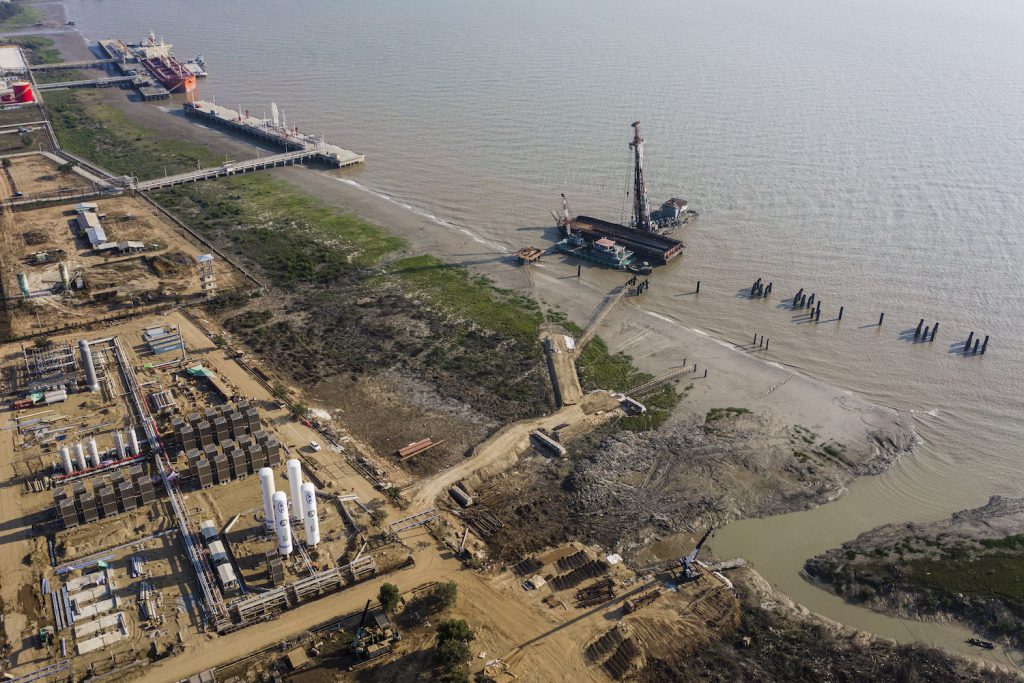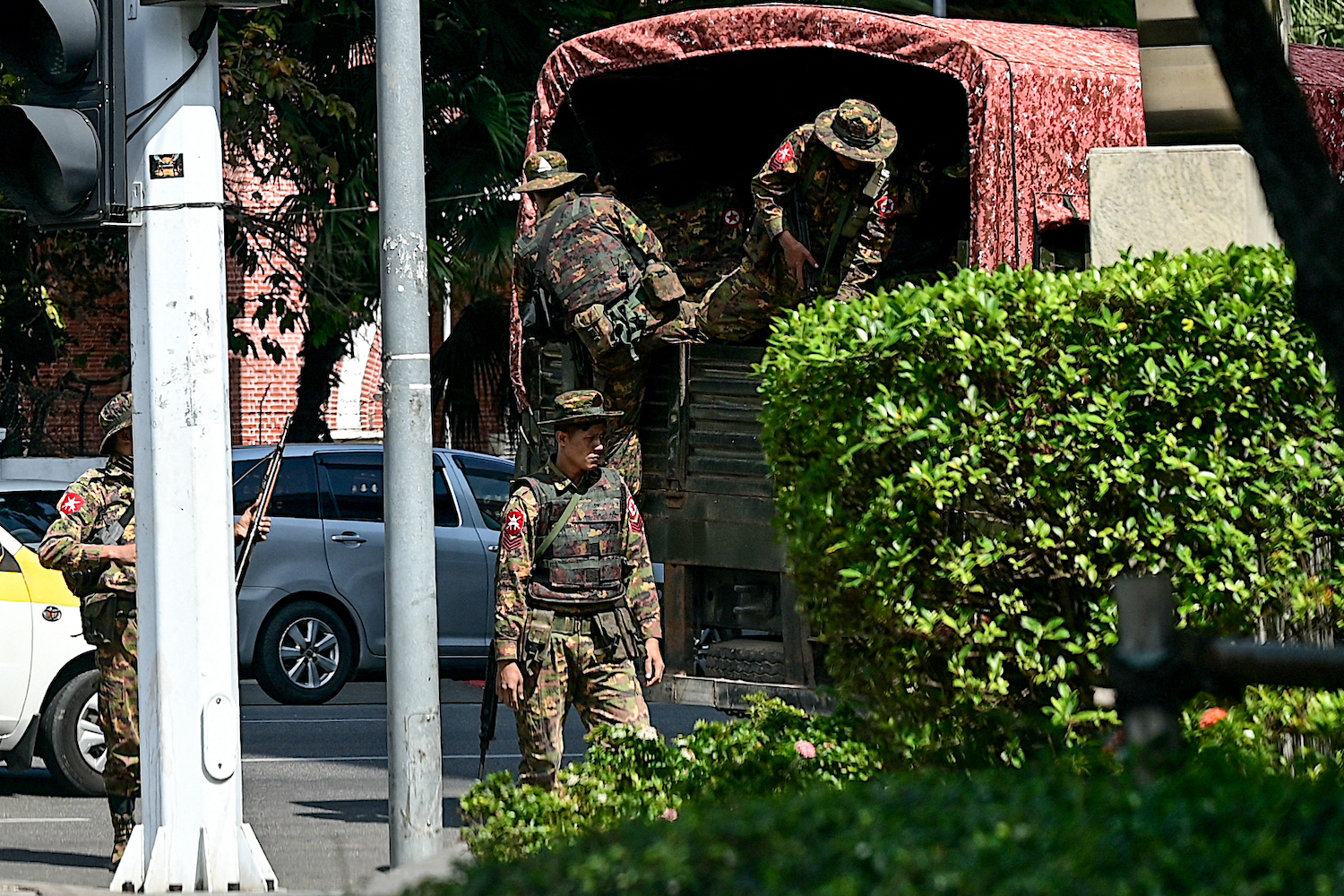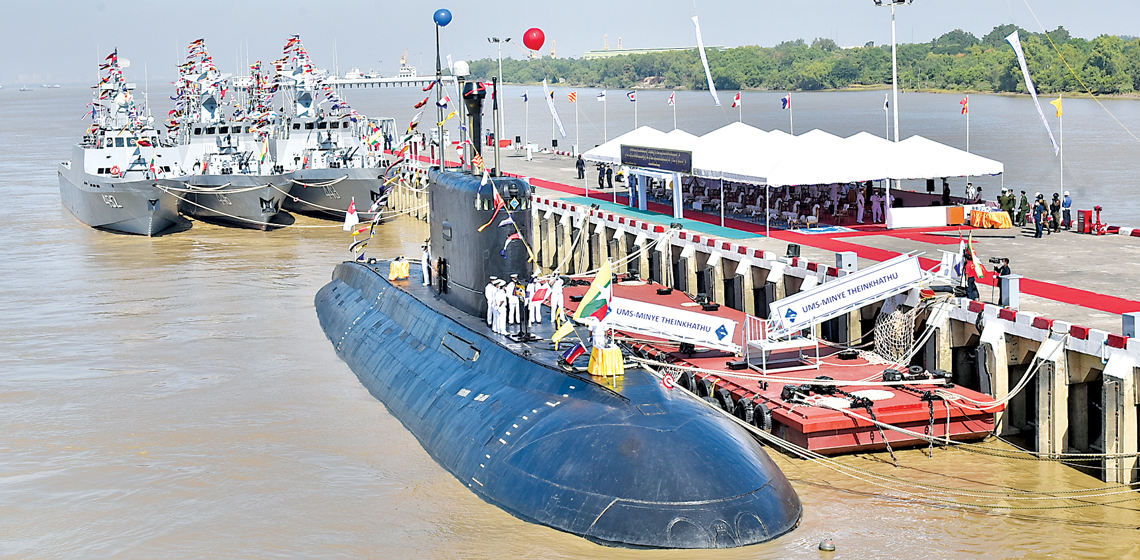A leaked junta memo shows three Chinese firms appealing to Nay Pyi Taw to arrange liquified natural gas imports from Russia amid economic turmoil in Myanmar.
By FRONTIER
A leaked document from the junta’s Ministry of Electric Power reveals that three Chinese energy companies appealed to the junta for help importing liquified natural gas from the Russian government, as the regime’s economic policies wreak havoc on the energy sector.
The document, in the form of a memo, indicates a meeting took place on July 25 in Nay Pyi Taw with representatives from MoEP, Hong Kong-listed VPower and Chinese state-owned firms CNTIC and Genertec. (VPower is also part-owned by CITIC, another Chinese state-owned investment firm).
“At present, we are having difficulty getting LNG and US dollars,” reads the memo, explaining that because the companies could not get US dollars in time, the LNG meant for them was sold to another buyer.
A representative from one of the three companies, who requested anonymity, confirmed the authenticity of the document but declined to comment further.
“We contacted Russia to buy LNG but they do not want to sell directly to a company, they only want to sell government-to-government,” the document reads, appealing for the junta’s MoPE to “help purchase LNG from Russia”.
VPower did not confirm or deny the authenticity of the document, but said it “does not engage in nor plan to engage in any LNG procurement” and has no “business dealings with any Russian entities”.
One of Southeast Asia’s leading electricity producers, VPower led a consortium in 2019 that won an emergency tender aimed at a plugging a critical gap in Myanmar’s power generation. But projects from this tender stalled even before the February 2021 coup, and expectations were further dashed by a series of disastrous economic policies introduced by the new junta.
Those include harsh restrictions requiring that US dollars be converted to Myanmar kyat within a short period of time at a conversion rate far below the market value, set by the junta-controlled Central Bank. The policy is intended to help the junta replenish its dwindling foreign reserves but is leaving many international companies without dollars and suffering a loss every time they exchange.
Mr Jason Tower, Myanmar country director for the United States Institute for Peace, said the proposal is unusual because LNG is “plentiful” in Myanmar, and shifting to Russia would not have solved the companies’ main problem, the lack of US dollars.
An analyst with knowledge of the matter, who commented on the condition of anonymity, said “the kyat has depreciated twice as much against the ruble as against the dollar” since the coup.
“Min Aung Hlaing’s wish to increase dependence on the ruble and imports from Russia simultaneously makes little sense. It’s like he’s trying to weaken Myanmar as much as possible,” they said.
According to the leaked document, the companies “have no income to pay interest to the bank for the loans we had taken out to implement the plan. Now banks have tightened their rules on us”.
“The desperate and convoluted steps these companies are taking to try to keep operating is another example of the disastrous economic impact of the attempted coup which began last year,” said Mr Mark Farmaner, director of advocacy group Burma Campaign UK.
VPower’s nascent energy empire in Myanmar has been imperilled by the coup. In 2021, the company announced it would not renew contracts for two of its nine projects in the country, and the leaked document shows at least two of its other projects have been suspended. In March of this year, citing a “significant drop of foreign exchange volume in Myanmar”, among other factors, VPower said it expected a “significant decrease” of profits from the three power plants it operates jointly with CNTIC.
“VPower’s experience is a warning to other energy companies in Myanmar, because they had bet the most on Myanmar’s energy development,” said the analyst.
Farmaner said it’s “appalling” that international investors would “facilitate deals between the military and the Russian regime for the sake of their own business interests”.
Tower said involvement in a deal with the Myanmar junta and Russian government would hurt the international reputation of VPower, which also does business in Europe and Latin America. “I would think this has got to be a problem for them,” he said.
Farmaner noted that VPower and CNTIC have been cooperating with military-owned companies since entering Myanmar. VPower’s Thilawa project in Yangon was being developed on a port owned by military conglomerate Myanmar Economic Holdings Limited, exposed as a key source of income for the military after the Rohingya crisis.
While many international businesses have pulled out of Myanmar since the coup in response to instability and human rights abuses, Tower said many Chinese firms have continued to operate in Myanmar or even entered the country, reflected by the fact that four new Chinese chambers of commerce have opened in that time.
“They feel that now that all of these other companies are moving out, and the [junta] is desperate for business, it’s good time to lock things in and put in plans for future projects,” he said, adding that many won’t actually do any work themselves, but will secure concessions and hope to “spin” them to other companies later.
Tower said this also fits into propaganda narratives from the Chinese government and Chinese state-owned enterprises that everything is “normal” in Myanmar, despite continued violence and instability.







